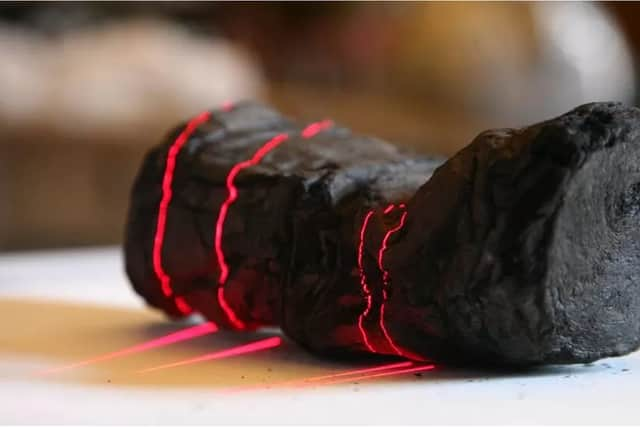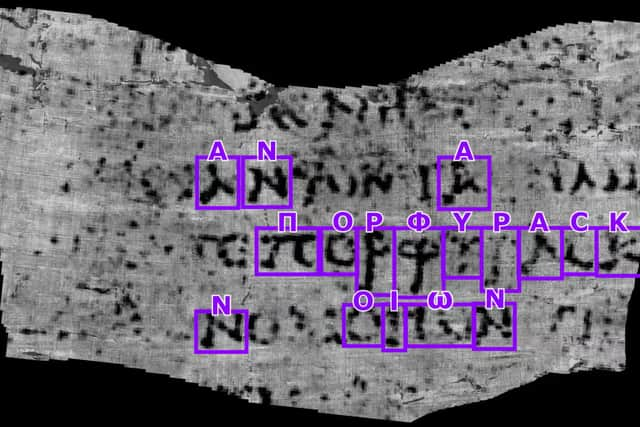Vesuvius challenge: artificial intelligence helps read word on ancient Roman scroll
and live on Freeview channel 276
Scientists from the University of Kentucky have used Artificial Intelligence (AI) to read an ancient scroll that was scorched nearly 2,000 years ago.
When Mount Vesuvius reached Herculaneum in AD79, it burnt hundreds of scrolls, but now researchers have extracted the first word from one of the two texts.
Advertisement
Hide AdAdvertisement
Hide AdProfessor Brent Seales, a computer scientist at the University of Kentucky and others, who launched the Vesuvius challenge announced the discovery on Thursday (12 October).


The challenge began in March 2023, to accelerate the reading of the texts and was backed by Silicon Valley investors. It offers cash prizes to researchers who extract legible words from the carbonised scrolls.
When launching the Vesuvius challenge, Seales and his team released thousands of 3D X-ray images of two rolled-up scrolls and three papyrus fragments. The team also released an artificial intelligence program trained to read letters in the scrolls based on subtle changes that the ancient ink made to the structure of the papyrus.


Luke Farritor in Nebraska and Youssef Nader, two computer science students in Berlin independently hit on the same ancient Greek word in one of the scrolls: “πορφύραc”, meaning “purple”. Farritor, who was first to find the word, wins $40,000 with Nader winning $10,000.
Advertisement
Hide AdAdvertisement
Hide AdDr Federica Nicolardi, a papyrologist at the University of Naples Federico II, said three lines of the scroll, containing up to 10 letters, were now readable with more expected to come. A recent section shows at least four columns of text.
“This word is our first dive into an unopened ancient book, evocative of royalty, wealth, and even mockery,” Seales said. “What will the context show? Pliny the Elder explores ‘purple’ in his ‘natural history’ as a production process for Tyrian purple from shellfish. The Gospel of Mark describes how Jesus was mocked as he was clothed in purple robes before crucifixion. What this particular scroll is discussing is still unknown, but I believe it will soon be revealed. An old, new story that starts for us with ‘purple’ is an incredible place to be.”
“The strong suspicion is that the non-philosophical part of the library remains to be discovered, and here fantasy runs riot: new plays of Sophocles, poems of Sappho, the Annals of Ennius, lost books of Livy and so on,” said Robert Fowler, emeritus professor of Greek at the University of Bristol. “It would be great too to find so-called documentary papyri: letters, business papers, and so on; these would be a treasure-trove for historians.”
“For me, reading words from within the Herculaneum scrolls is like stepping onto the moon,” Seales added. “Honestly, I knew that the text was there, waiting for us to arrive, but arrival only happens at the last step. And with such a talented team working together, reading the words is that step into new territory, and we’ve taken it. Now it is time to explore.”
Comment Guidelines
National World encourages reader discussion on our stories. User feedback, insights and back-and-forth exchanges add a rich layer of context to reporting. Please review our Community Guidelines before commenting.
